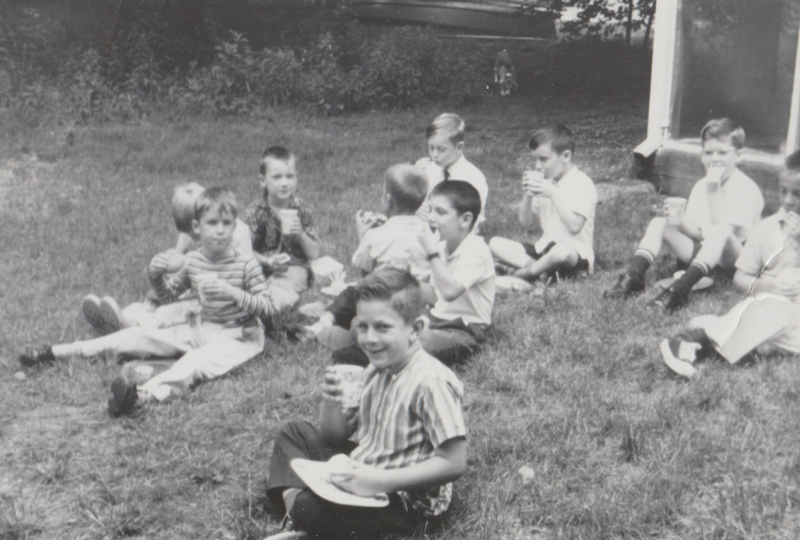I’ve never made any bones about occasionally dipping the toes into cold water of best-selling novelist Shari Lapena’s “airport fiction” (although with transportation centers closing newsstands by the score that snooty insult may soon be obsolete). Lapena doesn’t traffic in “fancy” or complex prose, but she does deliver a decent mystery whodunit, and I look past the clichés to learn the identity of the killer. Her latest, What Have You Done? is formulaic—if it ain’t busted!—but I had an inkling by page 50 of the perp’s identity. And in the last 10 pages, got the reward: I was right! Said to myself, “I fucking knew it,” and wasn’t shy about grinning from North Baltimore to Dundalk.
Briefly, the book’s set in the small town of Fairhill, Vermont—doors not locked, most residents are good neighbors (who gossip tamely, while eating ice cream and watching TV at night), and if it weren’t for cell phones and computers the town has a 1960s feel rather than today’s Vegan Vermont. Politics isn’t mentioned once, mercifully, unusual for a novel whose characters live in the world of 2023. But trouble’s afoot immediately, as in Jessica Fletcher’s Cabot Cove, Maine, when a pretty and smart high school senior, Diana, is found brutally murdered, her body left naked in a farmland ditch. The good-looking, athletic, but dim boyfriend Cameron is an immediate suspect; as is a twentysomething gym teacher who, while engaged to a “safe” woman, digs taking peeks at girls in the shower; and a white-trash construction worker who also delights in young female flesh is questioned relentlessly by detectives shipped into Fairhill since the local PD doesn’t have the resources.
It was a quick read, a page-turner really, and while Lapena will never be invited to a gala (what passes for “gala” today, not much) New Yorker literary festival, I’d imagine the author, who lives on a farm outside of Toronto is happier cashing her checks.
One of the novels sub-plots is the teenagers telling ghost stories, often at the town’s small cemetery, and trying to speak to the dead. I glossed over these sections—it’s not as if you miss much with a skimmer here and there—since it bore no relation to my own childhood. I went to summer camp for five years in the 1960s, and “Capture the Flag” and archery were the highlights—cleaning out latrines at Boy Scout camp was rough going—and campfires had nary a ghost story, instead some beatnik-for-a-month counselor trotting his acoustic guitar and leading sing-alongs to Peter, Paul & Mary and the Everly Brothers and later The Beatles and Motown. Cookouts, definitely, with toasted marshmallows and charred dogs, but Casper and his beyond-the-grave colleagues were snubbed.
As a pre-teen, the closest I got to the paranormal was gazing at the spinning dryer in Dicky Howard’s basement, pretending to see spooky colors which didn’t signify much, aside from an unrealized preview of mescalin and Mr. Natural trips not too far into future. More fun was using the auxiliary phone to make “phony phone calls,” innocent (if annoying to the recipient) mischief that could kill the better part of an hour after school. And marathon sessions of Monopoly, also at Dicky’s house—as I’ve noted before, my own house was a “no friends” zone since it was usually messy and my Mom didn’t want “the neighbors to talk.” And, as was the custom in the 1960s, breaking into a barely-sequestered box of Playboy mags that Dicky’s dad tried to hide.
Later, as a teenager in junior high, I went to just one “sleepover” (I think that was primarily a chick activity), six of us bullshitting for several hours at Keith Wheeler’s house and not getting much shuteye. It was boring: at five a.m. I took my leave and walked home, without the benefit of Ouija boards. The only tall tale told was one guy saying he got a hand job from Beck down in the schoolyard, and the least gullible of us, while not immune to keep-it-to-yourself fantasies, told him to hit the head with Rosie Palmer.
Reading keeps your mind sharp, no matter what age—regenerating lost brainpower after breezing through maybe-it’s-true-but-probably-isn’t “news” of the day—and while I wouldn’t recommend a steady diet of Shari Lapena-type fiction, What Have You Done? kept me turning pages, with the benefit of outsmarting the Joe Friday lead detective. A minor score for Smitty!
The accompanying picture is of a summer birthday party in Huntington, New York, and I’ll be doggone if I can remember who was turning six. Maybe Timmy Finnegan, Brook McQuayle, Kenny McGuire, Matt Hazelwood or Dave Cicale. Could be me, since I don’t think photos were party favors.
Look at the clues to figure out the year: Walker Percy’s The Moviegoer, Joseph Heller’s Catch-22 and Jean Genet’s The Screens are published; suicide is decriminalized in England and Wales; the first issue of Private Eye is published; Cliff Richard stars in The Young Ones; Stu Sutcliffe leaves The Beatles; the Packers win 37-0 over the Giants for the NFL championship; Whitey Ford is the World Series MVP; Emile Griffith retains his Welterweight Championship; Sherluck wins the Belmont Stakes; Todd Haynes is born and Gary Cooper dies; One Hundred and One Dalmatians is released; and The Six Flags Over Texas theme park opens.
—Follow Russ Smith on Twitter: @MUGGER2023

